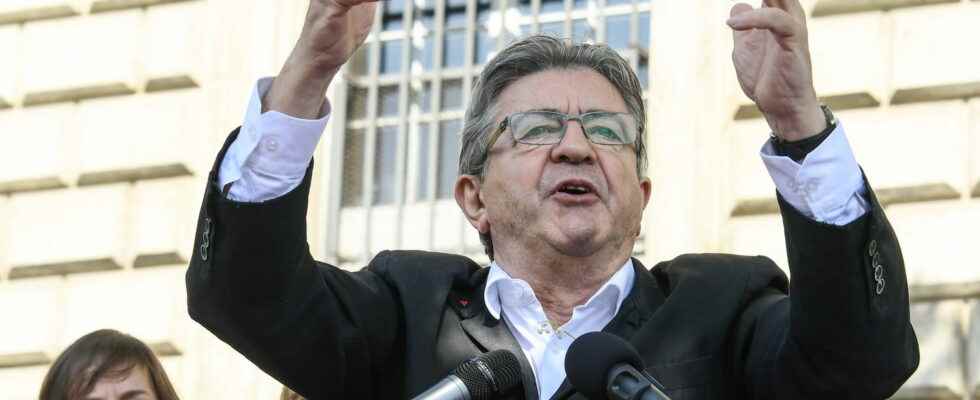MELENCHON. While LFI and EELV have reached an agreement for the legislative elections, could Jean-Luc Mélenchon win the post of Prime Minister?
“Mélenchon Prime Minister”: the campaign poster of La France insoumise for the legislative elections has not gone unnoticed. A clear message inscribed with, in the background, the face of Jean-Luc Mélenchon, a clear signal on the project carried by the party after its failure in the presidential election. But to achieve this, the deputy of Bouches-du-Rhône and his lieutenants must roll up their sleeves. Because isolated, difficult to imagine LFI obtaining a majority of seats in the National Assembly. The failed attempt to unite in view of the first round of the presidential election has not been forgotten and the rivalries seem to be swept under the rug. Because the ambition of a “Popular Union” carried by Jean-Luc Mélenchon in order to impose a cohabitation on Emmanuel Macron takes a little thickness. On the night of May 1 to 2, 2022, LFI and EELV indeed concluded an agreement for the legislative elections. After programmatic discussions, the two parties endorsed the allocation of 100 constituencies to environmentalists with no rebellious competing candidate, in exchange for which they will nominate Jean-Luc Mélenchon as head of government if LFI and EELV obtain majority in the National Assembly.
To do this, Jean-Luc Mélenchon must still work to rally behind him and convince the Socialist Party and the Communist Party to join the alliance. Will the tribune manage to convince these historic political families, undermined for their part internally by the reluctance of old veterans evoking a crossing of the Rubicon if the leaders were to top in the hand of the third of the last presidential election? This “pre-third round” already appears very intense, but above all decisive for the left.
This is the discourse hammered out by Jean-Luc Mélenchon and La France insoumise since the defeat of the party on the evening of the first round of the presidential election: to work to better prepare for the “third round”, namely the legislative elections, by not allowing not to Emmanuel Macron to have a majority of deputies in the National Assembly but by offering more than half of the seats to elected officials stamped with the Popular Union. But is the ambition of the former Minister of Vocational Education achievable? On paper, yes. If LFI and its allies win the legislative elections, Emmanuel Macron will be forced to appoint a Prime Minister from the majority group at the Bourbon Palace. But in reality?
As part of a grand alliance bringing together, in addition to EELV, the PCF and the PS, the Popular Union of Insubordinate France could collect around a third of the votes cast in the first round of the legislative elections, according to two polls made by Harris Interactive and Cluster 17, at the end of April (there has been no other since). However, according to the projections of the seats obtained linked to the voting intentions, Harris Interactive is betting on 50 to 100 seats maximum. This is only a trend, subject to change over the weeks. However, to obtain a majority in the National Assembly, it is necessary to win 289 seats. The road to Matignon still looks very long for Jean-Luc Mélenchon.
“There is not a mouse hole, there is a door which is there, you take it or you choose the other” launched Jean-Luc Mélenchon in his interview for BFM-TV on April 19, addressing his first-round opponents here. From the in-between rounds, the Insoumis had indeed focused on negotiations for an alliance for the legislative elections. His interlocutors? The fallen parties EELV, the PCF and the NPA, enjoining “all those who want to join the Popular Union to join us for this beautiful battle”. He had tried to challenge the NPA of Philippe Poutou who, although having obtained a score lower than 1% in the first round, has been trying to infuse his ideas into French political life since 2012. He had also addressed the candidate centrist Jean Lassalle, whose 3.13% of votes obtained in the first round could be useful to the alliance.
Since the first round of the presidential election and their hegemonic position obtained on the left, the Insoumis have proposed a union around their program and the People’s Union movement to other political forces. Their conditions: no more attacks on their movement and their leader and a distribution of the seats of deputies in proportion to the results obtained by each political formation during the first round of the presidential election. After EELV, will the Socialist Party and the Communist Party also enter the dance?
